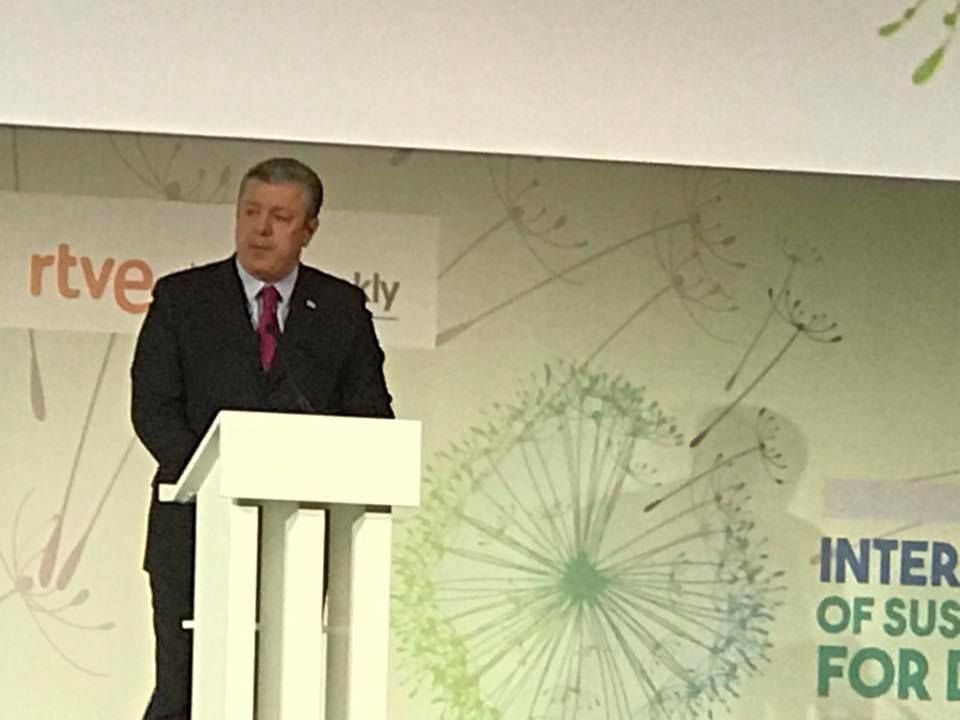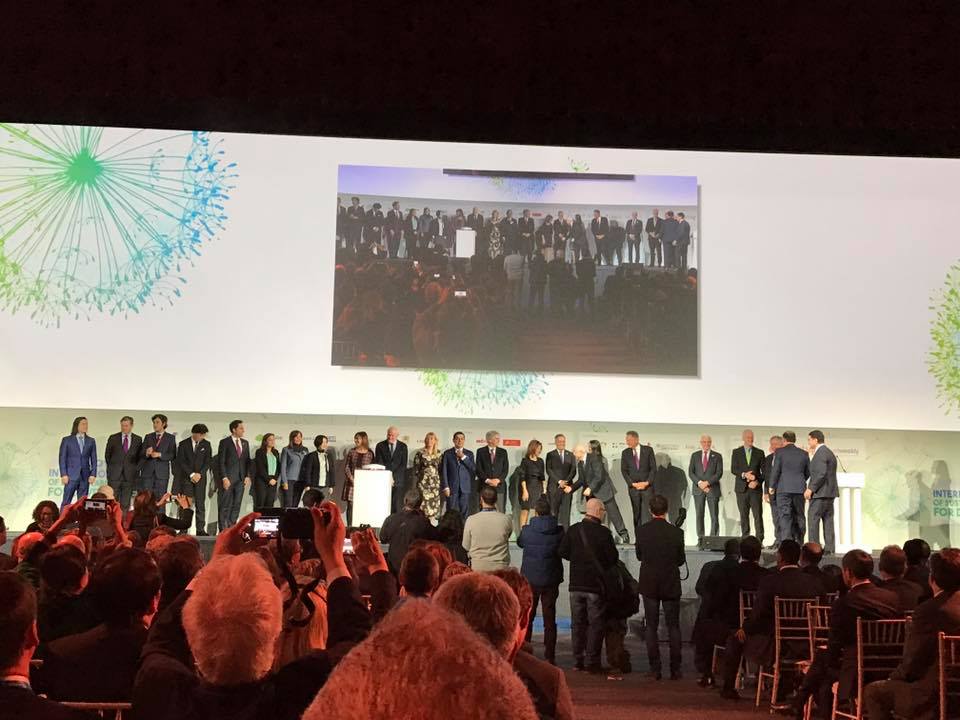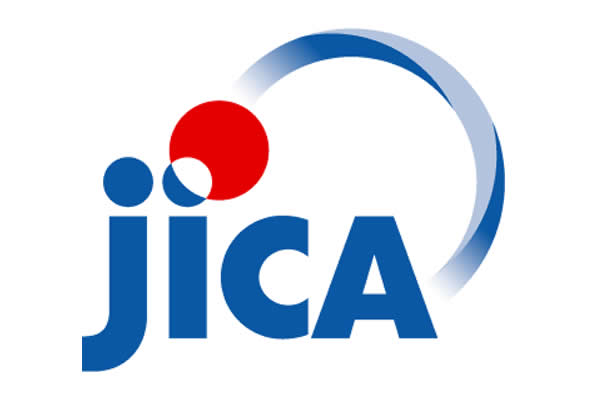

Appropriate or clever? Georgia’s Prime Ministers remarks at UNWTO event at FITUR
2017 is the UNWTO International Year of sustainable tourism for development. The event for the opening was today at FITUR 2017, a travel and tourism trade show that opened today at the Madrid Convention Center. The first speaker at the event and guest of honor, the Honorable Giorgi Kvirikashvili, prime minister of Georgia showed no hesitation to be the first to take the gloves off in the developing fight on who would become the next Secretary-General of the United Nations World Tourism Organization. Was his move appropriate or clever?
As a head of State, he pitched his ambassador to Spain, H.E. Zurab Pololikashvili candidacy to lead the United Nations World Tourism Organization as the next secretary general.
Ambassador Zurab Pololikashvili had presented his credentials to the Secretary-General of the World Tourism Organization (UNWTO) several weeks prior.
The prime minister pointed out Georgia beeing qualified since the country is a European country and had a 20% growth in tourism last year. Some in the audience thought this was a bold and self-servicing step knowing all other candidates were in the audience unable to speak or discuss their ambition. “A clever play”, was the other response.
Candidates from Zimbabwe, Seychelles, Brazil and Korea are among those already competing with the Georgian ambassador. More candidates may follow. The deadline to present credentials is March 12.

His Excellency Walter Mzembi’s response was to have his supporters remind FITUR visitors to remind them of the first African Candidate competing to lead the global UN organization as a candidate giving out a pin. It’s a fun out of the box approach for a unique candidate with a lot of fresh ideas.
Alain St. Ange, former minister of tourism from the Seychelles officially entered the race today as the second African competing for the post. It would be the first for an African UNWTO Secretary-General to be elected.

2017 International Year of Sustainable Tourism Development was officially opened with an all-star participation
Today at FITUR in Madrid the 2017 International Year of Sustainable Tourism Development was officially opened with an all-star participation.
The presentation at the opening day of Spain’s largest travel and tourism trade show in Madrid was attended by more than 60 ministers of tourism, by Georgia’s prime minister, a First Lady from South America, and a member of the Royal Family from Jordan, as well as many other dignitaries and tourism leaders.
Two days before a new uncertain beginning having a president in charge in the United States who doesn’t believe in climate change, this is an important step for the global travel and tourism industry.
After a short greeting by the UNWTO Secretary-General Taleb Rifai, H.E. Prime Minister of Georgia, Giorgi Kvirikashvili gave his keynote address.
It was followed by H.E. the Vice President of Honduras Ricardo Alvarez, a speech by the Minister of Foreign Affairs and Cooperation of the host country Spain, Alfonso Maria Dastis.
Congratulatory remarks were presented by the High Representative for the United Nations Alliance of Civilization Naasir al Nasser, and by Fransesco Banadrin, Assistant Director- General for Culture, United Nations Educational, Scientific and Cultural Organization (UNESCO). and by EU Commissioner for Internal Market, Industry, Entrepreneurship and SME’s, Elzbieta Bienkovska.
UNWTO Secretary-General Taleb Rifai related remarks by the UN Secretary-General and appointed two ambassadors to spread the word around the the 2017 international year of sustainable tourism for development.

UNWTO and Japan International Cooperation Agency partner to promote sustainable tourism
The World Tourism Organization (UNWTO) and the Japan International Cooperation Agency (JICA) have signed a Memorandum of Cooperation aimed at providing a framework for joint action in the area of sustainable tourism.
The agreement, undersigned by UNWTO Secretary-General, Taleb Rifai, and JICA Executive Senior Vice President, Kazuhiko Koshikawa, opens important opportunities of collaboration as JICA is one of the largest global donors in terms of international cooperation for development in tourism.
As underlined in the document, the agreement aims to contribute to the achievement of the 2030 Agenda for Sustainable Development and the Sustainable Development Goals (SDGs) through tourism. A particular focus is given to assisting developing countries to reduce poverty through tourism as well as to improve public policies and business practices in order to ensure sustainable and responsible production and consumption patterns along the tourism supply chain.
“To work together with a development agency that has 40 years of experience is a privilege and a unique opportunity for UNWTO, particularly now that we are launching the International Year of Sustainable Tourism for Development 2017,” said UNWTO Secretary General Taleb Rifai on the occasion of the signature of the agreement conducted at the Organizations’ Headquarters in Madrid.
Other areas of cooperation include research and knowledge-sharing in themes such as tourism and poverty reduction, tourism development in developing countries, tourism and climate change and tourism and security.
In addition, both Organizations will cooperate in technical assistance projects addressing policy and strategy development, institutional strengthening, quality standards, human resource development as well as capacity building.
Additional information:
Visit the portal of the International Year of Sustainable Tourism for Development 2017

Sustained growth in international tourism despite challenges
Demand for international tourism remained robust in 2016 despite challenges. International tourist arrivals grew by 3.9% to reach a total of 1,235 million, according to the latest UNWTO World Tourism Barometer. Some 46 million more tourists (overnight visitors) travelled internationally last year compared to 2015.
2016 was the seventh consecutive year of sustained growth following the 2009 global economic and financial crisis. A comparable sequence of uninterrupted solid growth has not been recorded since the 1960s. As a result, 300 million more international tourists travelled the world in 2016 as compared to the pre-crisis record in 2008. International tourism receipts grew at a similar pace in this period (complete 2016 receipts results will be reported in May).
“Tourism has shown extraordinary strength and resilience in recent years, despite many challenges, particularly those related to safety and security. Yet, international travel continues to grow strongly and contribute to job creation and the wellbeing of communities around the world”, said UNWTO Secretary-General Taleb Rifai.
By region, Asia and the Pacific (+8%) led growth in international tourist arrivals in 2016, fuelled by strong demand from both intra- and interregional source markets. Africa (+8%) enjoyed a strong rebound after two weaker years. In the Americas (+4%) the positive momentum continued. Europe (+2%) showed rather mixed results, with double-digit growth in some destinations offset by decreases in others. Demand in the Middle East (-4%) was also uneven, with positive results in some destinations, but declines in others.
Recalling that 2017 has been designated by the United Nations the International Year of Sustainable Tourism for Development, Mr. Rifai said “we need to work closer together to harness the contribution of tourism to economic growth, social inclusion, cultural and environmental preservation and mutual understanding, particularly when we live in times with such a deficit of respect and tolerance”.
Experts remain optimistic about 2017
The latest survey of UNWTO’s Panel of Experts shows continued confidence in 2017, with the large majority (63%) of the some 300 respondents expecting ‘better’ or ‘much better’ results than in 2016. The Panel score for 2017 virtually equals that of 2016, so growth is expected to be maintained at a similar level.
Based on current trends, the outlook of the UNWTO Panel of Experts and economic prospects, UNWTO projects international tourist arrivals worldwide to grow at a rate of 3% to 4% in 2017. Europe is expected to grow at 2% to 3%, Asia and the Pacific and Africa both at 5% to 6%, the Americas at 4% to 5% and the Middle East at 2% to 5%, given the higher volatility in the region.
2016 Regional Results
Results in Europe were rather mixed with a number of destinations affected by safety and security challenges. International arrivals reached 620 million in 2016, or 12 million (+2%) more than in 2015. Northern Europe (+6%) and Central Europe (+4%) both recorded sound results, while in Southern Mediterranean Europe arrivals grew by 1% and in Western Europe results were flat.
Asia and the Pacific (+8%) led growth across regions in both relative and absolute terms, recording 24 million more international tourist arrivals in 2016 to total 303 million. Growth was strong in all four subregions, with Oceania receiving 10% more arrivals, South Asia 9% more and North-East Asia and South-East Asia both 8% more.
International tourist arrivals in the Americas(+4%) increased by 8 million to reach 201 million, consolidating the solid results recorded in the last two years. Growth was somewhat stronger in South America and Central America (both +6%), while the Caribbean and North America recorded around 4% more arrivals.
Available data for Africa points to an 8% rebound in international arrivals in 2016 after two troubled years, adding 4 million arrivals to reach 58 million. Sub-Saharan Africa (+11%) led growth, while a gradual recovery started in North Africa (+3%).
The Middle East received 54 million international tourist arrivals in 2016. Arrivals decreased an estimated 4% with mixed results among the region’s destinations. Results for both Africa and the Middle East should be read with caution as they are based on limited available data.
Note: All results in this release are based on preliminary data, as reported by the various destinations around the world, and UNWTO estimates of still-missing data. UNWTO will continue to collect data and will present more comprehensive data by country in the April issue of the UNWTO World Tourism Barometer.
Useful links:
UNWTO Tourism Highlights, 2016 Edition
International Year of Sustainable Tourism for Development 2017
